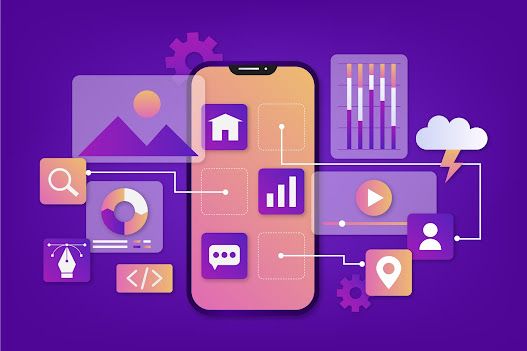The Evolution of Mobile App Development Tools
The journey of mobile app development tools has been nothing short of remarkable. From the early days of simple text editors to the sophisticated integrated development environments (IDEs) of today, the evolution has been driven by the ever-increasing demand for faster, more efficient, and more collaborative development processes. These tools have grown from mere code editors to encompass a wide range of features that cater to different stages of the app development lifecycle.
The Power of "Mobile App Development" Tools
Custom Mobile app development tools are the cornerstone upon which exceptional applications are built. They serve as enablers, empowering developers to translate their creative visions into functional and user-friendly apps. These tools facilitate everything from writing code and designing user interfaces to testing, debugging, and deploying applications across various platforms.
Exploring the Leading Mobile App Development Tools
Here's a comprehensive overview of 15 leading mobile app development tools that have become instrumental in shaping the future of app creation:
1. Android Studio
As the official Integrated Development Environment (IDE) for custom Android app development services, Android Studio provides developers with a powerful platform to design, code, and test applications. It offers a wide array of features, including an intelligent code editor, visual design tools, and built-in emulators for testing.
2. Xcode
Xcode is Apple's premier IDE for iOS app development. Equipped with a user-friendly interface, Xcode simplifies the development process with features like Interface Builder, which allows developers to create stunning user interfaces visually.
3. Flutter
Flutter, a cross-platform UI toolkit, has gained rapid popularity due to its ability to create natively compiled applications for mobile, web, and desktop from a single codebase. Its hot reload feature enables real-time experimentation and debugging.
4. React Native
React Native, powered by JavaScript, enables developers to build native mobile apps with the ease of web development. It facilitates the creation of rich, interactive user interfaces and supports rapid development.
5. Xamarin
Xamarin, backed by Microsoft, is a powerful tool for cross-platform app development services of using C#. Developers can share a significant portion of code across different platforms, reducing development time and effort.
6. Appy Pie
Appy Pie is a user-friendly, no-code app development platform that empowers individuals and small businesses to create their own apps. Its drag-and-drop interface and pre-built templates make app creation accessible to a wider audience.
7. PhoneGap
PhoneGap, an open-source framework by Adobe, allows developers to create apps using web technologies like HTML, CSS, and JavaScript. This enables cross-platform development while minimizing the need for platform-specific code.
9. Visual Studio
Microsoft's Visual Studio is a comprehensive suite of development tools that supports various programming languages and platforms. Its intelligent coding assistance and powerful debugging capabilities enhance the development experience.
10. Kotlin
Kotlin, endorsed by Google for Android app development, is lauded for its concise syntax and safety features. It reduces the chances of runtime errors and promotes developer productivity.
11. Swift
Swift, Apple's programming language, is designed to create fast, efficient, and secure iOS and macOS applications. Its modern syntax and performance-oriented features contribute to building high-quality apps.
12. Corona SDK
Corona SDK specializes in 2D game development and provides an intuitive platform for both beginners and experts. Its quick development cycle and extensive libraries make it a popular choice for game creators.
13. Unity
Unity is a versatile game development engine that supports 2D, 3D, augmented reality (AR), and virtual reality (VR) experiences. Its rich asset store and cross-platform capabilities make it indispensable for game developers.
14. AppCode
AppCode is an intelligent IDE tailored for iOS/macOS development. It understands the intricacies of Swift, Objective-C, and C++, providing smart coding assistance and navigation features.
15. Hire Dedicated Developers for Your Next Project
The option to hire dedicated developers can significantly impact your project's success. These professionals offer a deep understanding of various technologies and platforms, ensuring that your app meets the highest standards. Whether you're developing a complex enterprise solution or a consumer-focused app, dedicated developers bring expertise that aligns with your specific needs.
Conclusion
The landscape of mobile app development is a dynamic one, with tools continuously evolving to meet the demands of modern developers. From industry-standard IDEs to innovative cross-platform frameworks and the option to hire dedicated developers, the choices are extensive. As technology advances and user expectations rise, staying informed about these tools is essential for crafting exceptional mobile applications that captivate audiences and drive business growth.

No comments:
Post a Comment